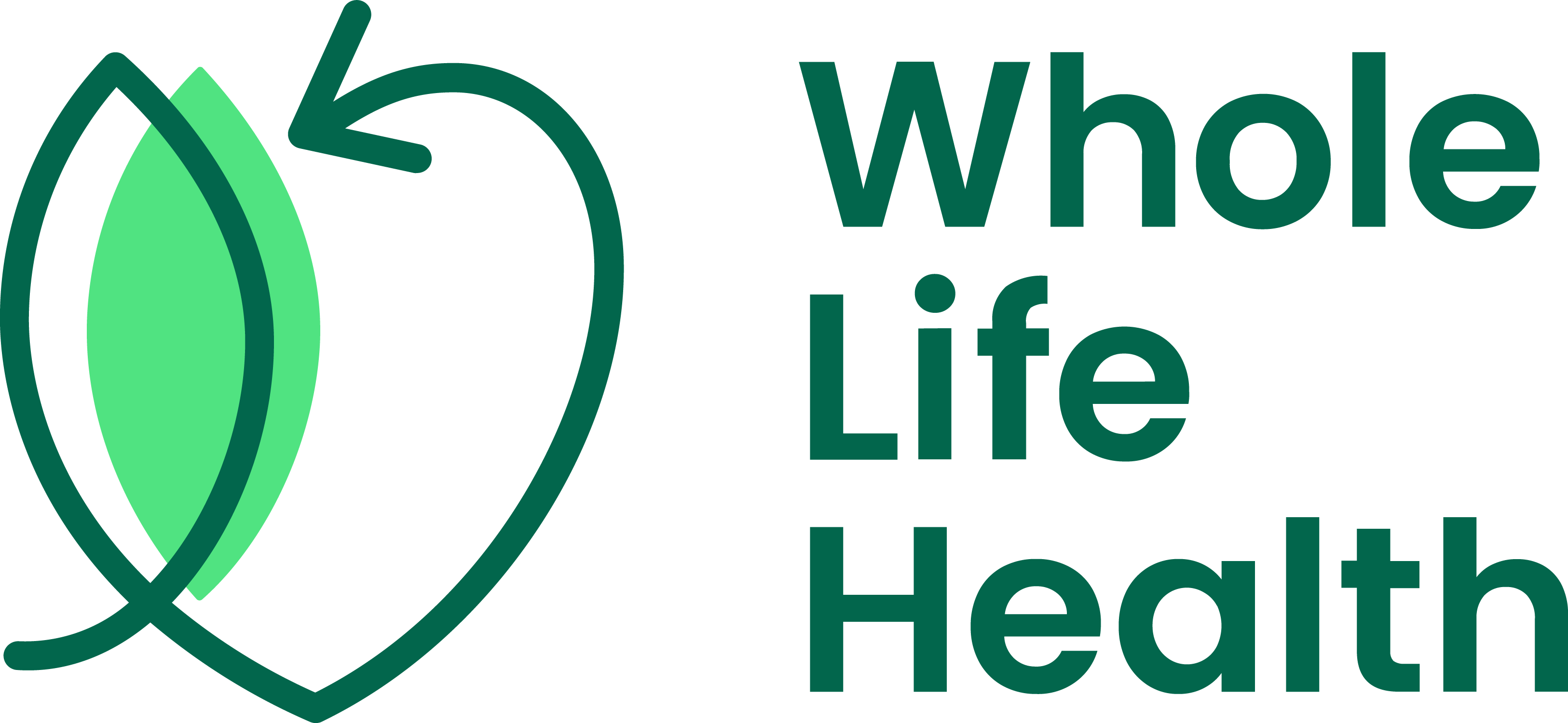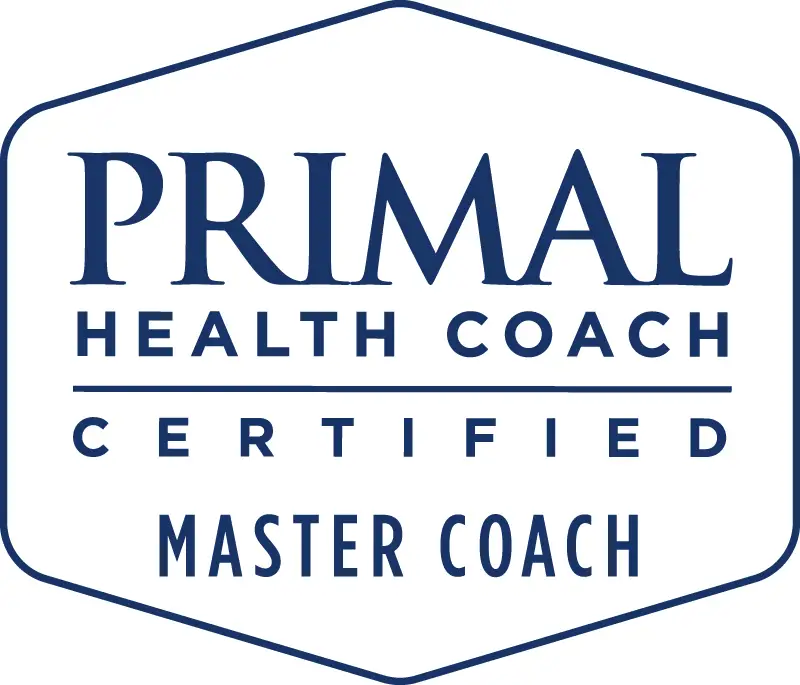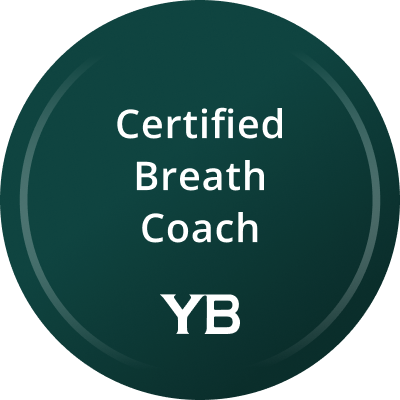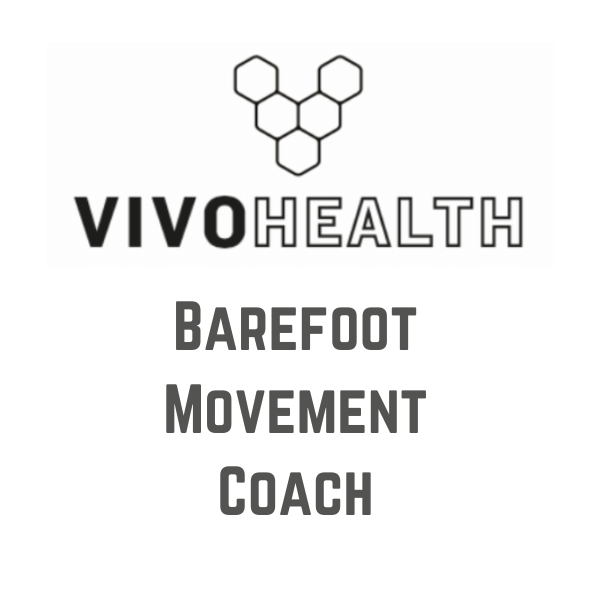Blog

Get Great Sleep - Basic Top 10
How I went from sleep pauper to sleep prince, and how you can too!
Only around 1 in 5 people in the UK get sufficient sleep. It is alarming that such a cornerstone of health is missing from so many people's lives. Here's a little of my story and my top ten basics that I applied to revolutionise my sleep - all of which also happen to be well backed by science. Check back soon for some advanced strategies that that can also be layered in.
I used to assume that my sleep pattern and sleep habits were pretty good. Against the average person in the UK my sleep was fairly comparable. I would get 6-7 hours of sleep out of an attempted 9 or so and would only get up a few times in the night to go to the toilet…
Pretty quickly in our marriage Freya pointed out that this amount of toilet trips was most definitely not normal or average at my age (27 at the time). OK, so I pee more than most, I drink more than most, I exercise more than most, I need to remove more toxins than most so maybe this is what was going on? Wrong! You’ll see in the sleep basics list below where the peeing issue got corrected.
So I accepted that this amount of peeing was not normal but also accepted that the length and quality of sleep was normal, was just my fate and that I was operating just ‘fine’ on this – if we define ‘fine’ as energy slumps, food cravings, tension headaches, backaches, workout addiction and struggling to shift excess body fat… which most people do define as fine and indeed normal. In fact, my mum had always said I was never a good sleeper, which many people have said about themselves or their children and accept that is their genetic lot and get on with it. The sad thing is that people have full on fallen for the idea that our genes are our lot. In reality our genes are switches that can be flicked on or flicked off through how we live; this is sad… but it is also where the opportunity lies, once we know the truth about our genetic flexibility!
Fast forward 6 years and my life has taken a few interesting (and exceedingly good) turns. One of the most notable is that I now sleep incredibly well, often through the night and get around 2 hours of both deep sleep and REM sleep showing that I progress through sleep stages rather well. I know this because my training watch tracks my sleep but I know it even more because I no longer have energy slumps, food cravings, tension headaches, workout addiction and my body fat levels have dropped sustainably over time with very little effort.
There is a huge knock on effect when it comes to sleep which you’ll be able to see from what I described above. The changes below don’t target just sleep hygiene but many health vectors. That said, when you crack your sleep many other vectors more easily come into line, are positively enhanced and we more easily work towards great health vector synergy, which ultimately helps us achieve Whole Life Health.
Sleep is when our body does it’s housekeeping; removing toxins and doing necessary repairs. This happens in all the cells of our body, so its not just muscular recovery and cleanup going on but also brain recovery and cleanup. This means your sleep will 100% guaranteed affect not just your muscles joints, hunger, digestion and skin quality but also your ability to concentrate, work efficiently, communicate effectively and regulate your emotions. This is a BIG deal!
Chronic lack of sleep can lead to:
Alzheimer’s, dementia, and accelerated cognitive decline
Diabetes and Insulin resistance
Low testosterone
Food cravings
Fat gain
Premature aging
Poor immune function
Impaired stress resilience
Lower levels of available antioxidants
Impaired athletic performance

Top 10 Basic Sleep Hygiene Tips
1. Prioritise Sleep (Keep a regular sleep schedule)
Our body is governed by our circadian rhythm which happens to be governed by nature around us – i.e. the rising and setting of the sun. We’re meant to be waking up around the time the natural world wakes up and be going to sleep around the time the rest of the natural world goes to sleep. This is a fairly regular thing (differing based on your latitude) and therefore our sleep should be a regular thing as well. If we don’t allow ourselves to observe routine in this matter we end up confusing our body. So, work out the rest of your day to honour your need for sleep and a regular wake up time. Don’t allow work, play or other factors to creep in to your sleep pattern. In prioritising sleep you’re actually also prioritising your work and play as well… if your boss wants to argue this point, send them my way!
This is also a huge one for our kids. We can feel like letting them stay up later at weekends is a good treat for them or that a lie in should be encouraged to help mum and dad get more rest. The reality is that we best serve our kids by getting them into a good routine. Some do actually recognise that this is good for their kids… now just for the adults to catch up!
2. Limit Inflammatory Foods
Here we have perhaps the least likely bit of sleep advice to be found on other lists, yet for me this has been the most profound. When I cut out grains, refined sugars and refined seed and vegetable oils from my diet my sleep improved exponentially within 1 week. This was largely due to the fact that the night time pissing stopped! That’s right, limiting inflammatory foods helped regulate my regularity. Not only that, though. Changing up my diet also led to me being less hot and sweaty in the night and not having irritable feet and restless legs – from the inflamed extremities. The worst thing about inflammation and sleep is that decent sleep helps us deal with inflammation, so you can see how this becomes a negative downward spiral. If you’re struggling to sleep, or even if you’re not, I highly recommend making this same dietary switch. Many people have other specifics they need to cut out to limit inflammation as well – this could be dairy, legumes, or whatever else you’ve noticed causes you irritation.
We all know how well kids sleep when they are sugar filled and it’s actually the same when they are generally carb filled – those carbs will break down to sugar. Instead, try filling your little ones up on good fats and adequate protein.
3. Create a Sleep Sanctuary
We have evolved to expect a night-time environment that is dark, cool and quiet so give your body what it wants and sleep somewhere dark, cool and quiet! Pay particular attention to light leaks around the side of your blackout blinds or curtains (if you don’t have these already then either invest now or thicken up your curtains with another set of curtains or other scrap materials). Also, weed out any gadgets emitting LED light, or better still just get rid of gadgets from your bedroom all together! Gadgets with a screen are a big no in the bedroom! If you still have energy when you get to bed… spend the time with some good old fashioned sex. If you need a TV in your bedroom for entertainment then you’re doing it wrong! Same goes for the smart phone, work and/or social media scrolling are really not helpful here. Firstly there’s the overt psychological arousal of work and/or social media and then there is the blue light. Both your TV and your smart phone emit blue light which actually raises stress hormone and shuts down sleep hormone more than direct sunlight… go figure. If you can, forgo all screens as long before bedtime as possible to best escape their hormone trap. If you must get something done on a screen after dark (we all occasionally have to) then use a blue light filtering app like f.lux to force your screen to be more sunset or camp fire like, in terms of light emitted. In our home, we also have lightbulbs that can be changed to a warmer and dimmer setting for the evening – they are rarely used any other time of day so we’re running each bulb on just 1.5w which is a win for the energy bill and the planet).
You know where I’m going with kids here right? There are myriad reasons to limit screen time and sleep is a big slice of the pie! Make sure their allotted time is as early in the evening as possible – if they even have such a thing – our daughter survived perfectly fine until aged 13 completely phone free.
We’ve found that knocking the heating off (if it’s on) a couple of hours before bedtime really helps us wind down. Keeping it too warm tricks our body into thinking that the sun is still up – especially when combined with artificial lights… and did anyone mentions screens? It’s also worth allowing kids to get used to cooling down in the evening, not warming up – this is an unhealthy association they will then have to break as adults.
4. Coffee (and caffeine more generally)
Ah coffee the crutch of the modern world… I actually love it. I’m a huge fan of the complex bitter, creamy, fruity, spicy flavours and aromas from a good cup of espresso, americano, filter or middle eastern kettle coffee. Coffee behaves a little differently in everyone’s body – some process it quickly and some slowly, some seem to have a big reaction and others very little. That said, most of the people who ‘don’t react’ actually do, they’ve just gotten used to it and are dulled to the effect. That was me, I thought I was a non-responder, but then my sleep was crap anyway and I just got used to caffeine being part of everyday that I no longer realised its effect. When switching to a Primal Lifestyle I became much more aware of the effect of what was going into my body and I really noticed when I consumed caffeine close to bedtime. So, my rough guideline is to avoid caffeine after midday and be free to have a little play a couple of hours either side of that and see what works.
Flip side of the coin… I also advise that you skip coffee first thing in the morning, especially if you feel you ‘need’ it. This is because caffeine first thing interferes with our morning stress hormone production. Stress hormone or cortisol, also happens to be our ‘wake up and kick-ass’ hormone. If we regularly interfere with this by consuming caffeine we end up needing the caffeine because our natural hormonal cycle is out of whack. This misalignment then leads to… you guessed it, bad sleep. Our body hasn’t gone through it’s intended daily cycle and often isn’t primed to then start the up-regulation in sleep hormone 12 or so hours later.
So, coffee for elevenses anyone?
5. Exercise
Back to our genes. They are expecting a good night’s sleep set up by an active day of hunting, gathering, building, playing, lifting a log or two and maybe running away from a predator. We want to mimic this daily schedule. The basic aim is to move regularly at a low intensity, lift some heavy things a few times a week (I like to do just a few reps of heavy stuff every 25 minutes to break my work up) and occasionally perform a very short all-out effort and then play around (this could be sport, or it could be playing with the dog, piggybacking the kids or some intimate fun with your loved one. This is the exercise recipe for good sleep – plenty of it, nothing too crazy and lots of fun.
This is pretty much how kids are wired to exercise anyway (apart from the sex, depending on the age of your kids – lets shelve that for now)…
… so maybe just let them take the lead and join in with some frisbee, manhunt or some garden parkour (this is assuming they haven’t already become screen zombies).
6. Sunlight
Your body is expecting dark, cool and quiet at night… guess what it is expecting during the day. That’s right, bright natural light and heat hitting your eyes and skin is part or the hormonal puzzle for great sleep. Take every reasonable opportunity to be outside or at least near a window for the appropriate daylight hours in your part of the world.
Did you want another reason to encourage outdoor play for your kids? You’re welcome!
7. Get Grounded
Grounding or earthing – literally getting your bare body on the bare earth may sound like the past time of hippies – and it probably was – but they were probably right. There’s an impressive growth in research being done on grounding demonstrating many positive effects. One of those positive effects is improved sleep; both the length and ease of obtaining sleep as well as progressing through the different stages of sleep. Grounding has actually become a popular pastime with my clients, most of whom combine it with a morning routine (see below) and this has led to feelings improved all round health including better sleep. Alongside this my mother-in-law now uses a grounding sheet, connecting her bed to ground connection in her house’s electrical system and she’s gone from doctors scratching their heads not able to offer any help with her sleep to sleeping well, through the night. These anecdotes plus the growing research means that you really ought to give this a go… unleash your inner hippie! You literally have to slip your socks and shoes off and walk on a natural surface for a minute or two, or go the whole hog and lie naked on a mountain top… why not?
Many adventure playgrounds are now installing barefoot walks for kids – now you know why. Kids love this… you will too!
8. Morning Routine
We are creatures of habit, but many of our habits have formed by chance or have been driven by circumstance and external forces. Here’s an opportunity for course correction. Developing a morning routine – that you consistently stick to – is a revolutionary step toward Whole Life Health and sleep. How? Many a modern parent begins their day by rushing around sorting the kids out, making school lunches, responding to text messages or other social assaults and then jumping in the car, via school drop offs and hey presto, they are at work. This whole morning has been reactionary. A reaction to the external pressures of the world around them. Cultivating a morning routine means doing something for yourself before the craziness kicks in and allows you to ease into the day. Freneticism first thing sets the tone for a day of more stress and reactions. A morning routine sets the tone of self care, self awareness, mindfulness and an ability to move forward and respond to the demands of the day in a measured way. This morning routine may consist of mindfulness practice, grounding in the garden, prayer, a cup of coffee (if wanted, not ‘needed’), reading something that fills you with light and life… anything really, so long as you can cultivate it into a day in, day out practice that is not pressured and is freely chosen into and is good for you.
Morning routines lead to a better you. That’s a better spouse, a better parent, a better colleague and an all round better being. Even if you have to keep your kids and or significant other waiting first thing, they’ll learn to thank you in the long run as you become more self-aware, more patient, more resilient and better at responding to their needs in a measured and appropriate way, rather than in a reactionary and emotionally turbulent way. This is also a great practice to model to your kids. Sound good… get your morning routine in check!
9. Bedtime Routine
So, you started the day well – let’s bookend that with a good finish. The regularity of routine can become a primer for your body to know what is coming and begin to enter that sleepy state. Again, this could be many things but we’re erring toward relaxing practices done in a dimly lit and cool climate. This could include reading an easy novel, some mediations, a gentle stroll around the block, a cup of chamomile tea, self massage with some lavender (or if you can find a willing volunteer then that’s a winner – you could also return the favour as giving a massage actually releases more happy hormones than receiving one). It could include any of the above or none of the above. Again, keep it simple and make it stick.
With your kid’s bedtime routine make it something they look forward to, build a positive association. The most successful bedtime routines for younger ones include meaningful interaction with mum, dad or siblings and also hit your kids’ top love languages.
10. Alcohol
People look at me strangely when I have a a glass of wine with lunch or a mid afternoon whiskey. No, I don’t have an alcohol problem but most people do. The problem is that the time of their tipple is interfering with their sleep. Alcohol close to bedtime is a well known sleep disruptor – even if you sleep through the night you’re unlikely to properly progress through all the necessary sleep stages that make up a good sleep session. Ultimately you can just go without alcohol altogether and you’ll miss very little health wise, but if you’re in a culture where alcohol comes with a healthy social life then maybe you don’t want to dispense with it completely. If, like me, if you really enjoy a certain drink, keep it minimal in the evenings and if people think you’re weird for switching your moderate drinking to earlier in day; you can just let them know that it’s even more weird to sacrifice sleep and long term health, in pursuit of a short-term taste bud tickle… or whatever else they may be tickling after a few beverages!
Changing the Habits of a Lifetime
Sleep habits are often deeply ingrained, together with many other health habits. Making a change in these areas can seem like an uphill struggle, but this does not mean that your goals are unachievable.
Jake Mahal is a Primal Health Coach & Habit Change Expert here to guide you toward great sleep and Whole Life Health. Book a free call today to see if Whole Life Health is right for your and start your journey towards habitual happiness.

Get Great Sleep - Basic Top 10
How I went from sleep pauper to sleep prince, and how you can too!
Only around 1 in 5 people in the UK get sufficient sleep. It is alarming that such a cornerstone of health is missing from so many people's lives. Here's a little of my story and my top ten basics that I applied to revolutionise my sleep - all of which also happen to be well backed by science. Check back soon for some advanced strategies that that can also be layered in.
I used to assume that my sleep pattern and sleep habits were pretty good. Against the average person in the UK my sleep was fairly comparable. I would get 6-7 hours of sleep out of an attempted 9 or so and would only get up a few times in the night to go to the toilet…
Pretty quickly in our marriage Freya pointed out that this amount of toilet trips was most definitely not normal or average at my age (27 at the time). OK, so I pee more than most, I drink more than most, I exercise more than most, I need to remove more toxins than most so maybe this is what was going on? Wrong! You’ll see in the sleep basics list below where the peeing issue got corrected.
So I accepted that this amount of peeing was not normal but also accepted that the length and quality of sleep was normal, was just my fate and that I was operating just ‘fine’ on this – if we define ‘fine’ as energy slumps, food cravings, tension headaches, backaches, workout addiction and struggling to shift excess body fat… which most people do define as fine and indeed normal. In fact, my mum had always said I was never a good sleeper, which many people have said about themselves or their children and accept that is their genetic lot and get on with it. The sad thing is that people have full on fallen for the idea that our genes are our lot. In reality our genes are switches that can be flicked on or flicked off through how we live; this is sad… but it is also where the opportunity lies, once we know the truth about our genetic flexibility!
Fast forward 6 years and my life has taken a few interesting (and exceedingly good) turns. One of the most notable is that I now sleep incredibly well, often through the night and get around 2 hours of both deep sleep and REM sleep showing that I progress through sleep stages rather well. I know this because my training watch tracks my sleep but I know it even more because I no longer have energy slumps, food cravings, tension headaches, workout addiction and my body fat levels have dropped sustainably over time with very little effort.
There is a huge knock on effect when it comes to sleep which you’ll be able to see from what I described above. The changes below don’t target just sleep hygiene but many health vectors. That said, when you crack your sleep many other vectors more easily come into line, are positively enhanced and we more easily work towards great health vector synergy, which ultimately helps us achieve Whole Life Health.
Sleep is when our body does it’s housekeeping; removing toxins and doing necessary repairs. This happens in all the cells of our body, so its not just muscular recovery and cleanup going on but also brain recovery and cleanup. This means your sleep will 100% guaranteed affect not just your muscles joints, hunger, digestion and skin quality but also your ability to concentrate, work efficiently, communicate effectively and regulate your emotions. This is a BIG deal!
Chronic lack of sleep can lead to:
Alzheimer’s, dementia, and accelerated cognitive decline
Diabetes and Insulin resistance
Low testosterone
Food cravings
Fat gain
Premature aging
Poor immune function
Impaired stress resilience
Lower levels of available antioxidants
Impaired athletic performance

Top 10 Basic Sleep Hygiene Tips
1. Prioritise Sleep (Keep a regular sleep schedule)
Our body is governed by our circadian rhythm which happens to be governed by nature around us – i.e. the rising and setting of the sun. We’re meant to be waking up around the time the natural world wakes up and be going to sleep around the time the rest of the natural world goes to sleep. This is a fairly regular thing (differing based on your latitude) and therefore our sleep should be a regular thing as well. If we don’t allow ourselves to observe routine in this matter we end up confusing our body. So, work out the rest of your day to honour your need for sleep and a regular wake up time. Don’t allow work, play or other factors to creep in to your sleep pattern. In prioritising sleep you’re actually also prioritising your work and play as well… if your boss wants to argue this point, send them my way!
This is also a huge one for our kids. We can feel like letting them stay up later at weekends is a good treat for them or that a lie in should be encouraged to help mum and dad get more rest. The reality is that we best serve our kids by getting them into a good routine. Some do actually recognise that this is good for their kids… now just for the adults to catch up!
2. Limit Inflammatory Foods
Here we have perhaps the least likely bit of sleep advice to be found on other lists, yet for me this has been the most profound. When I cut out grains, refined sugars and refined seed and vegetable oils from my diet my sleep improved exponentially within 1 week. This was largely due to the fact that the night time pissing stopped! That’s right, limiting inflammatory foods helped regulate my regularity. Not only that, though. Changing up my diet also led to me being less hot and sweaty in the night and not having irritable feet and restless legs – from the inflamed extremities. The worst thing about inflammation and sleep is that decent sleep helps us deal with inflammation, so you can see how this becomes a negative downward spiral. If you’re struggling to sleep, or even if you’re not, I highly recommend making this same dietary switch. Many people have other specifics they need to cut out to limit inflammation as well – this could be dairy, legumes, or whatever else you’ve noticed causes you irritation.
We all know how well kids sleep when they are sugar filled and it’s actually the same when they are generally carb filled – those carbs will break down to sugar. Instead, try filling your little ones up on good fats and adequate protein.
3. Create a Sleep Sanctuary
We have evolved to expect a night-time environment that is dark, cool and quiet so give your body what it wants and sleep somewhere dark, cool and quiet! Pay particular attention to light leaks around the side of your blackout blinds or curtains (if you don’t have these already then either invest now or thicken up your curtains with another set of curtains or other scrap materials). Also, weed out any gadgets emitting LED light, or better still just get rid of gadgets from your bedroom all together! Gadgets with a screen are a big no in the bedroom! If you still have energy when you get to bed… spend the time with some good old fashioned sex. If you need a TV in your bedroom for entertainment then you’re doing it wrong! Same goes for the smart phone, work and/or social media scrolling are really not helpful here. Firstly there’s the overt psychological arousal of work and/or social media and then there is the blue light. Both your TV and your smart phone emit blue light which actually raises stress hormone and shuts down sleep hormone more than direct sunlight… go figure. If you can, forgo all screens as long before bedtime as possible to best escape their hormone trap. If you must get something done on a screen after dark (we all occasionally have to) then use a blue light filtering app like f.lux to force your screen to be more sunset or camp fire like, in terms of light emitted. In our home, we also have lightbulbs that can be changed to a warmer and dimmer setting for the evening – they are rarely used any other time of day so we’re running each bulb on just 1.5w which is a win for the energy bill and the planet).
You know where I’m going with kids here right? There are myriad reasons to limit screen time and sleep is a big slice of the pie! Make sure their allotted time is as early in the evening as possible – if they even have such a thing – our daughter survived perfectly fine until aged 13 completely phone free.
We’ve found that knocking the heating off (if it’s on) a couple of hours before bedtime really helps us wind down. Keeping it too warm tricks our body into thinking that the sun is still up – especially when combined with artificial lights… and did anyone mentions screens? It’s also worth allowing kids to get used to cooling down in the evening, not warming up – this is an unhealthy association they will then have to break as adults.
4. Coffee (and caffeine more generally)
Ah coffee the crutch of the modern world… I actually love it. I’m a huge fan of the complex bitter, creamy, fruity, spicy flavours and aromas from a good cup of espresso, americano, filter or middle eastern kettle coffee. Coffee behaves a little differently in everyone’s body – some process it quickly and some slowly, some seem to have a big reaction and others very little. That said, most of the people who ‘don’t react’ actually do, they’ve just gotten used to it and are dulled to the effect. That was me, I thought I was a non-responder, but then my sleep was crap anyway and I just got used to caffeine being part of everyday that I no longer realised its effect. When switching to a Primal Lifestyle I became much more aware of the effect of what was going into my body and I really noticed when I consumed caffeine close to bedtime. So, my rough guideline is to avoid caffeine after midday and be free to have a little play a couple of hours either side of that and see what works.
Flip side of the coin… I also advise that you skip coffee first thing in the morning, especially if you feel you ‘need’ it. This is because caffeine first thing interferes with our morning stress hormone production. Stress hormone or cortisol, also happens to be our ‘wake up and kick-ass’ hormone. If we regularly interfere with this by consuming caffeine we end up needing the caffeine because our natural hormonal cycle is out of whack. This misalignment then leads to… you guessed it, bad sleep. Our body hasn’t gone through it’s intended daily cycle and often isn’t primed to then start the up-regulation in sleep hormone 12 or so hours later.
So, coffee for elevenses anyone?
5. Exercise
Back to our genes. They are expecting a good night’s sleep set up by an active day of hunting, gathering, building, playing, lifting a log or two and maybe running away from a predator. We want to mimic this daily schedule. The basic aim is to move regularly at a low intensity, lift some heavy things a few times a week (I like to do just a few reps of heavy stuff every 25 minutes to break my work up) and occasionally perform a very short all-out effort and then play around (this could be sport, or it could be playing with the dog, piggybacking the kids or some intimate fun with your loved one. This is the exercise recipe for good sleep – plenty of it, nothing too crazy and lots of fun.
This is pretty much how kids are wired to exercise anyway (apart from the sex, depending on the age of your kids – lets shelve that for now)…
… so maybe just let them take the lead and join in with some frisbee, manhunt or some garden parkour (this is assuming they haven’t already become screen zombies).
6. Sunlight
Your body is expecting dark, cool and quiet at night… guess what it is expecting during the day. That’s right, bright natural light and heat hitting your eyes and skin is part or the hormonal puzzle for great sleep. Take every reasonable opportunity to be outside or at least near a window for the appropriate daylight hours in your part of the world.
Did you want another reason to encourage outdoor play for your kids? You’re welcome!
7. Get Grounded
Grounding or earthing – literally getting your bare body on the bare earth may sound like the past time of hippies – and it probably was – but they were probably right. There’s an impressive growth in research being done on grounding demonstrating many positive effects. One of those positive effects is improved sleep; both the length and ease of obtaining sleep as well as progressing through the different stages of sleep. Grounding has actually become a popular pastime with my clients, most of whom combine it with a morning routine (see below) and this has led to feelings improved all round health including better sleep. Alongside this my mother-in-law now uses a grounding sheet, connecting her bed to ground connection in her house’s electrical system and she’s gone from doctors scratching their heads not able to offer any help with her sleep to sleeping well, through the night. These anecdotes plus the growing research means that you really ought to give this a go… unleash your inner hippie! You literally have to slip your socks and shoes off and walk on a natural surface for a minute or two, or go the whole hog and lie naked on a mountain top… why not?
Many adventure playgrounds are now installing barefoot walks for kids – now you know why. Kids love this… you will too!
8. Morning Routine
We are creatures of habit, but many of our habits have formed by chance or have been driven by circumstance and external forces. Here’s an opportunity for course correction. Developing a morning routine – that you consistently stick to – is a revolutionary step toward Whole Life Health and sleep. How? Many a modern parent begins their day by rushing around sorting the kids out, making school lunches, responding to text messages or other social assaults and then jumping in the car, via school drop offs and hey presto, they are at work. This whole morning has been reactionary. A reaction to the external pressures of the world around them. Cultivating a morning routine means doing something for yourself before the craziness kicks in and allows you to ease into the day. Freneticism first thing sets the tone for a day of more stress and reactions. A morning routine sets the tone of self care, self awareness, mindfulness and an ability to move forward and respond to the demands of the day in a measured way. This morning routine may consist of mindfulness practice, grounding in the garden, prayer, a cup of coffee (if wanted, not ‘needed’), reading something that fills you with light and life… anything really, so long as you can cultivate it into a day in, day out practice that is not pressured and is freely chosen into and is good for you.
Morning routines lead to a better you. That’s a better spouse, a better parent, a better colleague and an all round better being. Even if you have to keep your kids and or significant other waiting first thing, they’ll learn to thank you in the long run as you become more self-aware, more patient, more resilient and better at responding to their needs in a measured and appropriate way, rather than in a reactionary and emotionally turbulent way. This is also a great practice to model to your kids. Sound good… get your morning routine in check!
9. Bedtime Routine
So, you started the day well – let’s bookend that with a good finish. The regularity of routine can become a primer for your body to know what is coming and begin to enter that sleepy state. Again, this could be many things but we’re erring toward relaxing practices done in a dimly lit and cool climate. This could include reading an easy novel, some mediations, a gentle stroll around the block, a cup of chamomile tea, self massage with some lavender (or if you can find a willing volunteer then that’s a winner – you could also return the favour as giving a massage actually releases more happy hormones than receiving one). It could include any of the above or none of the above. Again, keep it simple and make it stick.
With your kid’s bedtime routine make it something they look forward to, build a positive association. The most successful bedtime routines for younger ones include meaningful interaction with mum, dad or siblings and also hit your kids’ top love languages.
10. Alcohol
People look at me strangely when I have a a glass of wine with lunch or a mid afternoon whiskey. No, I don’t have an alcohol problem but most people do. The problem is that the time of their tipple is interfering with their sleep. Alcohol close to bedtime is a well known sleep disruptor – even if you sleep through the night you’re unlikely to properly progress through all the necessary sleep stages that make up a good sleep session. Ultimately you can just go without alcohol altogether and you’ll miss very little health wise, but if you’re in a culture where alcohol comes with a healthy social life then maybe you don’t want to dispense with it completely. If, like me, if you really enjoy a certain drink, keep it minimal in the evenings and if people think you’re weird for switching your moderate drinking to earlier in day; you can just let them know that it’s even more weird to sacrifice sleep and long term health, in pursuit of a short-term taste bud tickle… or whatever else they may be tickling after a few beverages!
Changing the Habits of a Lifetime
Sleep habits are often deeply ingrained, together with many other health habits. Making a change in these areas can seem like an uphill struggle, but this does not mean that your goals are unachievable.
Jake Mahal is a Primal Health Coach & Habit Change Expert here to guide you toward great sleep and Whole Life Health. Book a free call today to see if Whole Life Health is right for your and start your journey towards habitual happiness.
© Whole Life Health 2024







